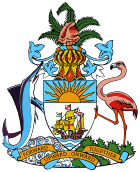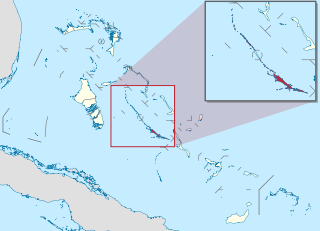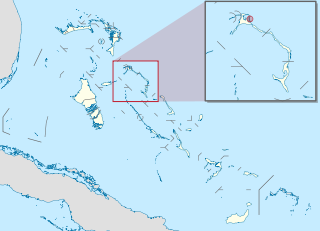
The Dorr Rebellion (1841–1842) was an attempt by middle-class residents to force broader democracy in the U.S. state of Rhode Island, where a small rural elite was in control of government. It was led by Thomas Wilson Dorr, who mobilized the disenfranchised to demand changes to the state's electoral rules. The state was still using its 1663 colonial charter as a constitution; it required that voters own land. A later legislative rule required that a man be white and own $134 in property in order to vote.

This section of the Timeline of Quebec history concerns the events in British North America relating to what is the present day province of Quebec, Canada between the time of the Constitutional Act of 1791 and the Act of Union 1840.

The Illinois House of Representatives is the lower house of the Illinois General Assembly, the bicameral legislature of the U.S. state of Illinois. The body was created by the first Illinois Constitution adopted in 1818. The House consists of 118 representatives elected from individual legislative districts for two-year terms with no limits; redistricted every 10 years, based on the 2010 U.S. census each representative represents approximately 108,734 people.
Elections in Georgia are held to fill various state and federal seats. Georgia regular elections are held every even year. The positions being decided each year varies, as the terms of office varies. Special elections are held to fill vacated offices. Georgia is one of seven states that require a run-off election if no candidate receives a majority of the vote in a primary election. Uniquely, Georgia requires a run-off election if no candidates wins a majority of the vote in a general election; only Louisiana has a similar requirement, but it operates under a different election system.

There have been 90 gubernatorial elections in the state of New York since 1777. The next one will be held on November 3, 2022.
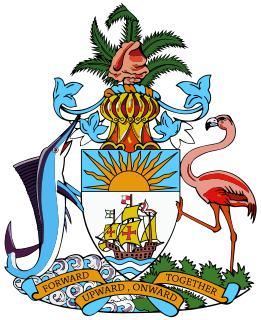
Elections in the Bahamas take place in the framework of a parliamentary democracy. Since independence voter turnout has been generally high in national elections, with a low of 87.9% in 1987 and a high of 98.5% in 1997. The current Prime Minister is the Hon Hubert Minnis.

Elections in the British Virgin Islands are conducted to elect members to the House of Assembly. In the British Virgin Islands elections are not conducted in relation to appointments to either the Executive or Judicial branches of Government, and there are no other publicly elected posts in the British Virgin Islands. Most elections are conducted as general elections, which under the Constitution are required to be held every four years, or as by-elections when a member of the House of Assembly dies or steps down. Since the re-introduction of democracy into the British Virgin Islands in 1950 there have been fifteen general elections, and three recorded by-elections. The next general election is scheduled to be held in 2015.
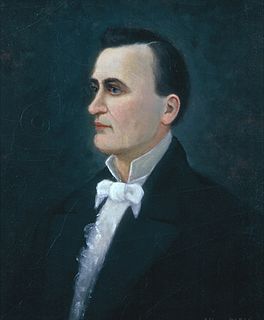
John Breathitt was the 11th Governor of Kentucky. He was the first Democrat to hold this office and was the second Kentucky governor to die in office. Shortly after his death, Breathitt County, Kentucky was created and named in his honor.

The House of Assembly is the lower house of the Parliament of the British Overseas Territory of Bermuda. The house has 36 Members of Parliament (MPs), elected for a term of five years in single seat constituencies using first-past-the-post voting. Bermuda now has universal voting with a voting age of 18 years. Voting is non-compulsory. The presiding officer of the House is called the Speaker.

The House of Assembly of the British Virgin Islands, until 2007 known as the Legislative Council, has 15 members: 13 directly elected for four-year terms, and two ex officio members.
Since the Great Depression, Rhode Island politics have been dominated by the Rhode Island Democratic Party. However, the Rhode Island Republican Party, although virtually non-existent in the Rhode Island General Assembly, occasionally puts forward occasional statewide reform candidates. Former Governor Donald Carcieri of East Greenwich, and former Mayor Vincent A. "Buddy" Cianci of Providence ran successfully as Republican reform candidates.
The 1833 United States Senate election in New York was held on February 5, 1833, by the New York State Legislature to elect a U.S. Senator to represent the State of New York in the United States Senate.
The United States Senate elections of 1850 and 1851 were elections which had the Democratic Party lose seats, but retain a majority in the United States Senate.
The United States Senate elections of 1856 and 1857 were elections which had the young Republican Party assume its position as one of the United States's two main political parties. The Whigs and Free Soilers were gone by the time the next Congress began.
The United States Senate elections of 1844 and 1845 were elections which, coinciding with James K. Polk's election, had the Democratic Party retake control of the United States Senate, gaining a net total of eleven seats from the Whigs.
The United States Senate elections of 1842 and 1843 were elections which had the Whigs lose seats but maintain control of the United States Senate. Although they lost three seats in the general elections, they gained two of them back by the start of the first session in special elections.
The United States Senate elections of 1840 and 1841 were elections which, corresponding with their Party's success in the 1840 presidential election, had the Whig Party take control of the United States Senate.
The United States Senate elections of 1862 and 1863 were elections during the American Civil War in which Republicans increased their control of the U.S. Senate. The Republican Party gained three seats, bringing their majority to 66% of the body. Also caucusing with them were Unionists and Unconditional Unionists. As many Southern states seceded in 1860 and 1861, and members left the Senate to join the Confederacy, or were expelled for supporting the rebellion, seats were declared vacant. To establish a quorum with fewer members, a lower total seat number was taken into account.
The members of the 1st General Assembly of Newfoundland were elected in the Newfoundland general election held in November 1832, the first general election for the colony. The general assembly sat from January 1, 1833 until 1836.

General elections were held in the Bahamas in September 1729, the first elections in the territory.
